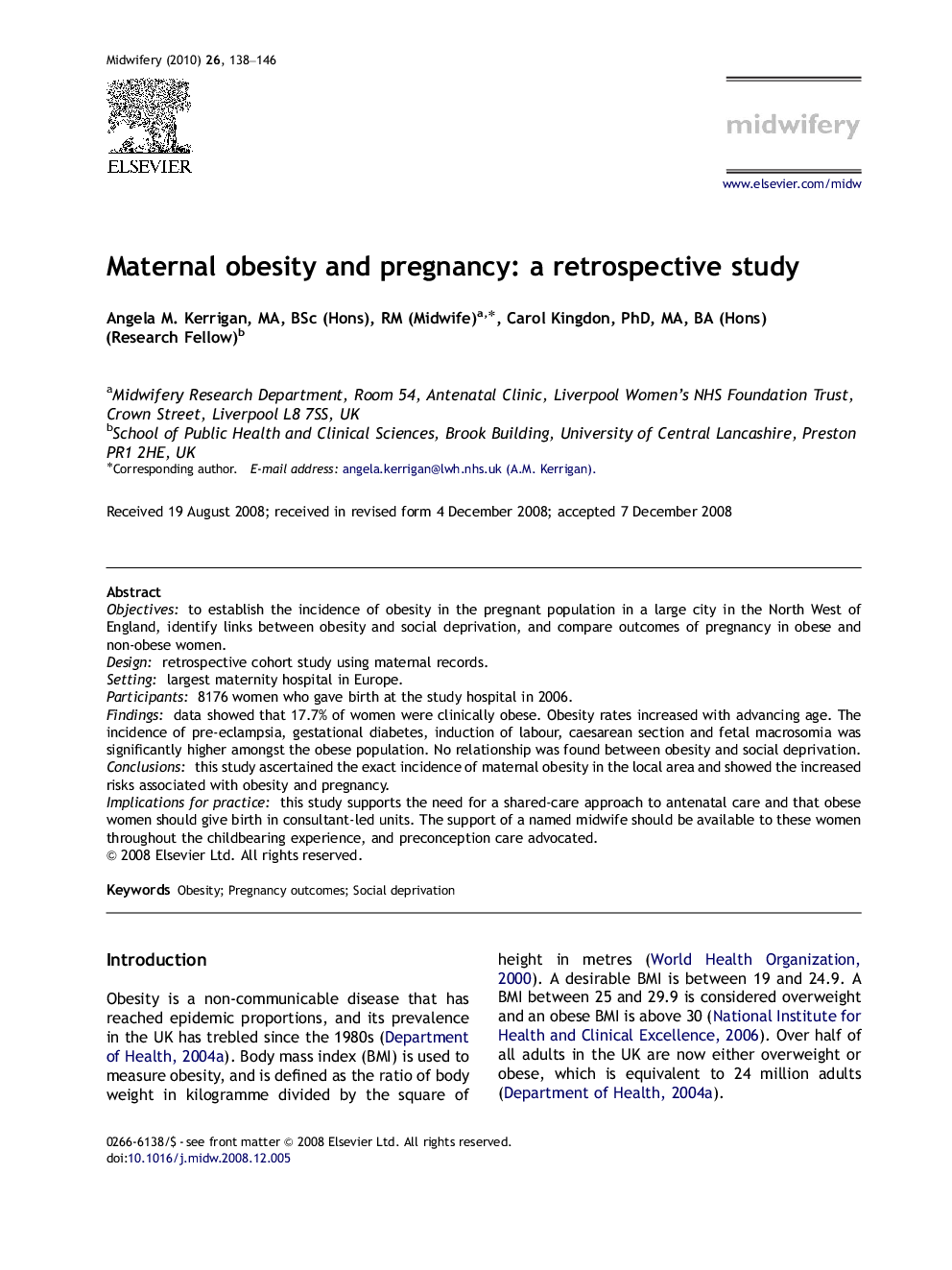| Article ID | Journal | Published Year | Pages | File Type |
|---|---|---|---|---|
| 1085448 | Midwifery | 2010 | 9 Pages |
Objectivesto establish the incidence of obesity in the pregnant population in a large city in the North West of England, identify links between obesity and social deprivation, and compare outcomes of pregnancy in obese and non-obese women.Designretrospective cohort study using maternal records.Settinglargest maternity hospital in Europe.Participants8176 women who gave birth at the study hospital in 2006.Findingsdata showed that 17.7% of women were clinically obese. Obesity rates increased with advancing age. The incidence of pre-eclampsia, gestational diabetes, induction of labour, caesarean section and fetal macrosomia was significantly higher amongst the obese population. No relationship was found between obesity and social deprivation.Conclusionsthis study ascertained the exact incidence of maternal obesity in the local area and showed the increased risks associated with obesity and pregnancy.Implications for practicethis study supports the need for a shared-care approach to antenatal care and that obese women should give birth in consultant-led units. The support of a named midwife should be available to these women throughout the childbearing experience, and preconception care advocated.
